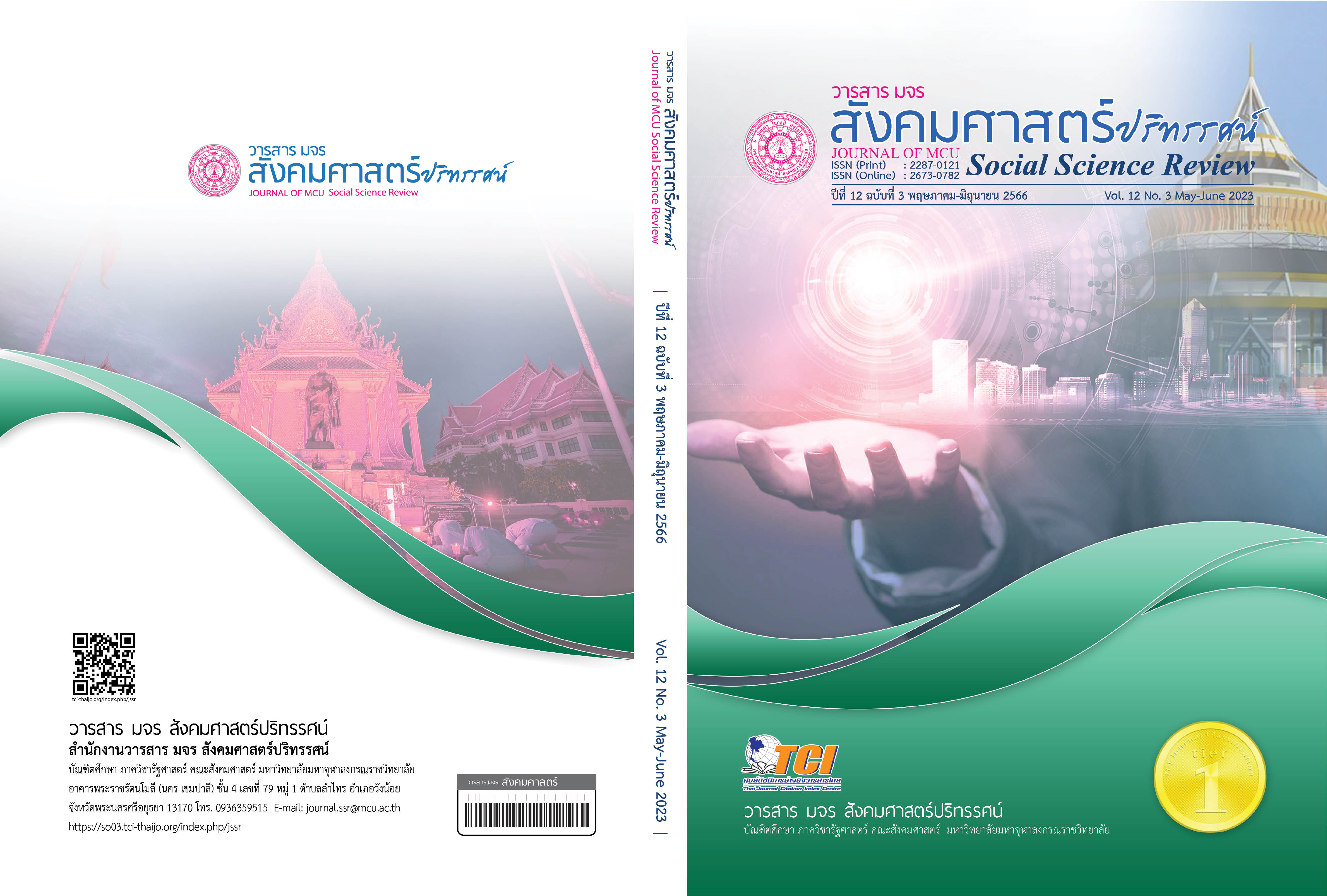การพัฒนากระบวนการเรียนการสอนเขียนตามแนวคิดการตอบสนอง ต่อการช่วยเหลือร่วมกับแนวคิดการสะท้อนคิด เพื่อส่งเสริมความสามารถ ในการเขียนภาษาอังกฤษเพื่อแสดงความคิดเห็น สำหรับนักเรียนชั้นประถมศึกษาตอนปลาย
คำสำคัญ:
การเขียนแสดงความคิดเห็น, แนวคิดการตอบสนองต่อการช่วยเหลือ, แนวคิดการสะท้อนคิด, การสอนเขียนบทคัดย่อ
บทความวิจัยนี้มีวัตถุประสงค์เพื่อ 1. พัฒนากระบวนการเรียนการสอนเขียนตามแนวคิดการตอบสนองต่อการช่วยเหลือร่วมกับแนวคิดการสะท้อนคิด เพื่อส่งเสริมความสามารถในการเขียนภาษาอังกฤษเพื่อแสดงความคิดเห็น 2. ศึกษาประสิทธิผลของกระบวนการเรียนการสอนเขียน โดยนำไปทดลองใช้กับนักเรียนชั้นประถมศึกษาปีที่ 6 ซึ่งได้มาด้วยวิธีการสุ่มแบบกลุ่มจำนวน 1 ห้องเรียน มีนักเรียนจำนวน 30 คน เป็นกลุ่มตัวอย่าง ผู้วิจัยใช้ระเบียบวิธีการวิจัยแบบศึกษากลุ่มเดียววัดก่อนและหลังการทดลอง ระยะเวลาในการทดลอง 20 สัปดาห์ เครื่องมือที่ใช้ได้แก่ แบบวัดความสามารถในการเขียนภาษาอังกฤษเพื่อแสดงความคิดเห็นชนิดคู่ขนาน และเกณฑ์การให้คะแนนแบบแยกองค์ประกอบ สถิติที่ใช้ในการวิเคราะห์ข้อมูล ได้แก่ ค่าเฉลี่ย ส่วนเบี่ยงเบนมาตรฐาน และค่าที
ผลการวิจัยพบว่า 1. กระบวนการเรียนการสอนที่พัฒนาขึ้นตามแนวคิดการตอบสนองต่อการช่วยเหลือร่วมกับแนวคิดการสะท้อนคิด ประกอบด้วย 5 ขั้นตอน ได้แก่ 1) ประเมินตนเอง 2) ชวนคิด พิจารณา ลงมือทำ 3) สร้างสรรค์งานเขียน 4) สะท้อนคิดเพื่อปรับปรุง และ 5) แลกเปลี่ยนความคิด แสดงเหตุผล 2. ผลการศึกษาประสิทธิผลของกระบวนการเรียนการสอนเขียน พบว่า 1) นักเรียนมีความสามารถในการเขียนภาษาอังกฤษเพื่อแสดงความคิดเห็นในภาพรวมสูงกว่าก่อนการทดลองอย่างมีนัยสำคัญทางสถิติที่ระดับ .05 และเมื่อจำแนกองค์ประกอบความสามารถในการเขียนภาษาอังกฤษเพื่อแสดงความคิดเห็น พบว่า ทุกองค์ประกอบหลังสูงกว่าก่อนการทดลองอย่างมีนัยสำคัญทางสถิติที่ระดับ .05 ยกเว้นองค์ประกอบที่ 1.1
เอกสารอ้างอิง
ชนิศา ตันติเฉลิม. (2560). การตอบสนองต่อการช่วยเหลือ : หลักการ องค์ประกอบสำคัญ และข้อเสนอแนะเชิงปฏิบัติสำหรับส่งเสริมการจัดการศึกษาแบบเรียนรวมในประเทศไทย. วารสารวิธีวิทยาการวิจัย, 30(2), 187-227.
อมรา แสงจันทมณี. (2524). แนวการสอนภาษาเพื่อการสื่อความหมาย. วารสารภาษาปริทัศน์, 1(2), 11-17
Beyreli, L., & Konuk, S. (2018). A Research on The Improvement of Persuasive Writing Skill of Sixth Grade Students in Secondary School. Education & Science/Egitim ve Bilim, 42(193), 181-215.
Conway J. (1994). Reflection, the art and science of Nursing and the theory practice gap. British Journal of Nursing, 3(1), 114-118.
Dunn, M. (2012). Response to intervention: Employing a mnemonic-strategy with art media to help struggling writers. Journal of International Education and Leadership. 2(3), 368-386.
Fernández-Díaz, Calvo, & Rodríguez-Hoyos. (2014). Towards a collaborative action research in Spain to improve teaching practice. Educational Action Research, 22(3), 397-410.
Good, Carter V. (1973). Dictionary of Education. New York: McGraw-Hill Book.
Guralnik, D. B. (1976). Webster’s New World Dictionary of American Language Ohio: Willam Collins and World Publishing Company.
Herder, A. et al., (2018). Reflective practices in collaborative writing of primary school students. International Journal of Educational Research, 90, 160-174.
Mann, S., & Walsh, S. (2013). RP or ‘RIP’: A critical perspective on reflective practice. Applied Linguistics Review, 4(2), 291-315.
Moon, J. (2013). Reflection in learning and professional development: Theory and practice. Routledge Falmer: New York.
National Center on Response to Intervention. (2010). Essential Components of RTI-A Closer Look at Response to Intervention. National Center on Response to Intervention.
Nippold, M., & Fanning, J. (2005). Persuasive writing in children, adolescents, and adults: a study of syntactic, semantic, and pragmatic development. Language Speech and Hearing Services in Schools, 36(2), 38-125.
Pollock, P.H. et al., (2011). Learning through discussions: Comparing benefits of small-group and large-class settings. Journal of Political Science Education, 7(1), 48-64.
Schamber, J., & Mahoney, S. (2000). Assessing and improving the quality of group critical thinking exhibited in the final projects of collaborative learning groups. The Journal of General Education, 55(2), 103-137.
Wilson, G. (2011). Evidencing reflective practice in social work education: Theoretical uncertainties and practical challenges. British Journal of Social Work, 43(1), 154-172.
York-Barr et al., (2006). Reflective practice to improve schools: an action guide for educators. California, USA: Corwin Press.
ดาวน์โหลด
เผยแพร่แล้ว
รูปแบบการอ้างอิง
ฉบับ
ประเภทบทความ
สัญญาอนุญาต
ลิขสิทธิ์ (c) 2023 วารสาร มจร สังคมศาสตร์ปริทรรศน์

อนุญาตภายใต้เงื่อนไข Creative Commons Attribution-NonCommercial-NoDerivatives 4.0 International License.
เพื่อให้เป็นไปตามกฎหมายลิขสิทธิ์ ผู้นิพนธ์ทุกท่านต้องลงลายมือชื่อในแบบฟอร์มใบมอบลิขสิทธิ์บทความให้แก่วารสารฯ พร้อมกับบทความต้นฉบับที่ได้แก้ไขครั้งสุดท้าย นอกจากนี้ ผู้นิพนธ์ทุกท่านต้องยืนยันว่าบทความต้นฉบับที่ส่งมาตีพิมพ์นั้น ได้ส่งมาตีพิมพ์เฉพาะในวารสาร มจร สังคมศาสตร์ปริทรรศน์ เพียงแห่งเดียวเท่านั้น หากมีการใช้ภาพหรือตารางหรือเนื้อหาอื่นๆ ของผู้นิพนธ์อื่นที่ปรากฏในสิ่งตีพิมพ์อื่นมาแล้ว ผู้นิพนธ์ต้องขออนุญาตเจ้าของลิขสิทธิ์ก่อน พร้อมทั้งแสดงหนังสือที่ได้รับการยินยอมต่อบรรณาธิการ ก่อนที่บทความจะได้รับการตีพิมพ์ หากไม่เป็นไปตามข้อกำหนดเบื้องต้น ทางวารสารจะถอดบทความของท่านออกโดยไม่มีข้อยกเว้นใดๆ ทั้งสิ้น





